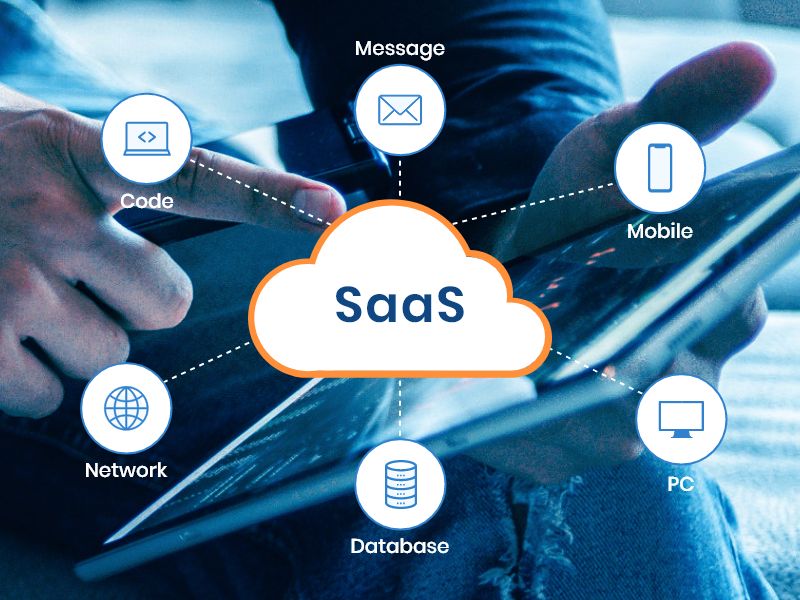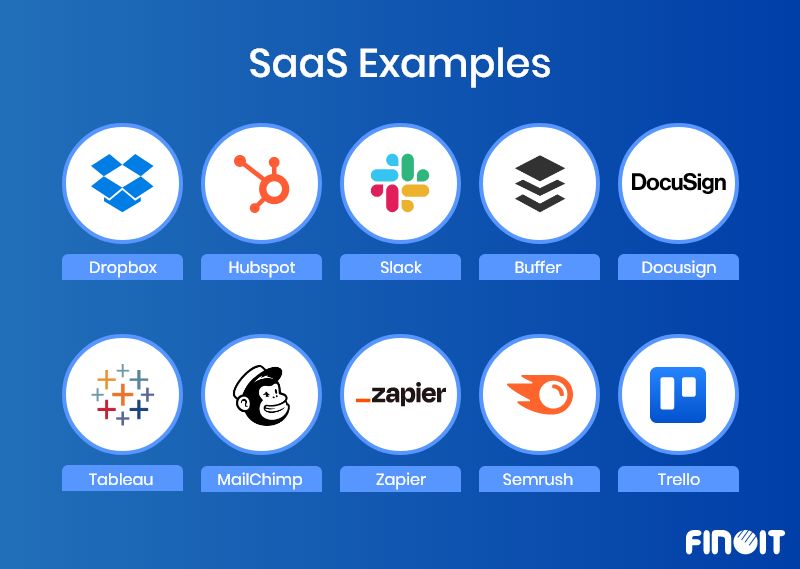What is SaaS: Concepts, Types, and Benefits

The Software as a Service (SaaS) model is booming, as more and more businesses are jumping on board. Packet CEO Zachary Smith affirms, “SaaS is a powerful model that allows companies to achieve incredible scale and reach with their products.” So, if you’re contemplating launching a SaaS product, it’s time to seize the opportunity.
The advantages of SaaS are manifold, encompassing cost savings, scalability, accessibility, automatic updates, and easy integration. With the global SaaS market projected to reach $99.99 billion by 2025, it’s no wonder SaaS is gaining traction in both personal and professional contexts.
As SaaS increases in importance, let’s learn more about the concept, its types and benefits, so that you can effectively leverage the SaaS model for your business. Here, we begin.
What is SaaS?
SaaS is a cloud-based software delivery model where users rent complete software solutions from a cloud service provider on a pay-as-you-go basis. The infrastructure, middleware, software, and data are located in the provider’s data center, allowing users to access the app from anywhere over the internet. The provider manages the hardware and software and ensures app availability and security, making it a cost-effective and convenient option for businesses.
Exploring the spectrum with types
There are different type of Saas products that serve unique purposes. Here, we take a quick look at them based on type of structure, functionality, and business category.
Types based on structure
When it comes to SaaS products, there are different types based on their structure. Understanding these types can help businesses choose the most suitable option for their needs.
Horizontal SaaS – It refers to a type of software that targets a wide range of industries and businesses, providing broad functionality that can be applied across multiple sectors.
Vertical SaaS – Vertical SaaS solutions target specific industries and create niche solutions to address industry pain points. Examples include insurance, trade or an underserved industry
Types based on functionality
SaaS products can also be categorized based on their functionality. Different SaaS products serve unique purposes for businesses and individuals. Here, we take a quick look at different types of SaaS products based on functionality.
Packaged software: This type of SaaS provides a full turnkey solution to a complex need by delivering it in one cohesive bundle.
Enablement and Management: These types of SaaS products provide metrics for a wide range of different things such as monitoring the behavior of users on a given website, monitoring activity on a network, testing a system or asset, and much more.
Collaborative software: These facilitate collaboration. For instance, members of a team can work on a common document, product, or project from any location online. Examples include Dropbox or Google Docs.
Type based on business category
We can also segment SaaS solutions into different business categories based on the business area they serve. Some examples include.
- Communication and Collaboration
- Customer Relationship Management (CRM)
- Human Resources Management (HRM)
- Enterprise Resource Planning (ERP)
- Accounting and Finance
- E-commerce
While these types of software serve diverse goals, they all have the potential to improve business and individual efficiency and productivity. Let us now look at the benefits of saas for small businesses.
How SaaS Solutions Can Transform Your Business for the Better
Now you know what is SaaS software, it’s time to check on the solutions and how it transforms your business. So let’s get in.

Also read: What are the key steps to follow when building a SaaS product?
Revolutionize Your Business with Flexibility
SaaS is a game-changer, offering businesses the flexibility to scale software usage up or down with ease. Dropbox is a prime example of how SaaS has transformed the way businesses operate. It’s cloud-based file-sharing and storage service enables seamless collaboration, anytime and anywhere. The best part? Dropbox offers tailored pricing plans based on storage needs, making it easier than ever to scale up or down as needed. With SaaS, businesses can pivot and adapt at lightning speed without the burden of costly hardware investments.
Cloud – based deployment brings agility
According to Jeff Immelt, former CEO of General Electric, “The cloud is the ultimate tool of agility. It enables the shift from physical to digital, and removes the barriers that exist in legacy businesses.”
SaaS also enables businesses to be more agile. The reason behind this is typically cloud-based, meaning they can be accessed from anywhere with an internet connection. This allows businesses to work remotely and collaborate with team members across different locations, improving communication and productivity. Additionally, SaaS providers typically offer frequent updates and new features, allowing businesses to stay up-to-date with the latest technology and remain competitive in their industry.
Shield Your Data from Threats
SaaS has revolutionized data security for businesses through advanced security measures like encryption and access controls. SaaS providers adhere to strict compliance standards, providing secure and compliant storage and processing of data. Hootsuite is an example of a company using SaaS to safeguard their customers’ data, fostering trust in their brand.
Doesn’t let cashflow hold your business back
SaaS solutions can provide businesses with a powerful tool to enhance their cash flow. Unlike traditional software deployment models, SaaS solutions offer businesses a pay-as-you-go model, with subscription-based pricing options that can be scaled up or down as needed. This means that businesses can avoid significant upfront costs and instead pay for their top-notch software development services on a per-user or per-month basis. With no hardware or infrastructure costs to worry about, businesses can enjoy improved cash flow, better budget predictability, and the flexibility to scale their software usage up or down as their needs change.
Unleash the Power of Seamless Innovation
Innovation is crucial to any thriving business, and SaaS solutions provide a powerful tool for seamless innovation. By utilizing the latest software innovations without the hassle of managing updates, businesses can stay ahead of the curve. SaaS providers are continuously updating their software to keep businesses competitive and adaptable to changing market conditions.
Prompt Support and Strong Community
SaaS solutions offer prompt support and a strong community. With 24/7 customer support and an active user community, businesses can quickly resolve any issues that arise and collaborate with others to share best practices and insights. Also, SaaS providers offer continuous training and education to help businesses maximize the value of their software investment.
Integrates with ease
SaaS solutions offer effortless integration with your technology stack. With APIs and pre-built connectors, businesses can seamlessly integrate their SaaS software with existing applications and systems, maximizing the value of their technology investments. By using real-time data syncing and automated workflows, businesses can streamline their processes and increase efficiency.
Final Words
In today’s fast-paced business world, SaaS is essential for companies looking to stay ahead of the competition. With the right development partner, businesses can harness the power of SaaS to increase efficiency, reduce costs, and improve overall performance.
To make the most of SaaS, businesses need to work with a reliable and experienced SaaS development company like Finoit Technologies. Finoit offers end-to-end SaaS development services, from planning and design to deployment and maintenance. So, connect with SaaS development team that can help businesses develop and implement customized SaaS solutions that meet their specific needs and requirements.

